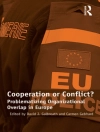It is not in the US interest to adopt tax and regulatory policies that would discourage global engagement by US multinational corporations (MNCs). Research presented in this book shows that the expansion of foreign affiliates of US MNCs is positively associated with more production, greater employment, higher exports, and more research and development (R&D) in the United States. These findings suggest that less investment abroad by US firms would weaken—not strengthen—the US economy. This analysis by no means implies that there are only winners and no losers from outward investment. Changing patterns of MNC investment, like changing patterns of technology and production more generally, contribute to job losses and dislocations for some workers and to new opportunities for others. To benefit the US economy and US workers most broadly, the United States will want to search for ways to strengthen the appeal of the United States as a base for the operations of international firms. High among the recommendations to accomplish this, the United States should adopt a territorial tax system, like the great majority of developed countries.
Over de auteur
Gary Clyde Hufbauer, Reginald Jones Senior Fellow since 1992, was formerly the Maurice Greenberg Chair and Director of Studies at the Council on Foreign Relations (1996–98), the Marcus Wallenberg Professor of International Finance Diplomacy at Georgetown University (1985–92), senior fellow at the Institute (1981–85), deputy director of the International Law Institute at Georgetown University (1979–81); deputy assistant secretary for international trade and investment policy of the US Treasury (1977–79); and director of the international tax staff at the Treasury (1974–76).Theodore H. Moran, nonresident senior fellow, has been associated with the Peterson Institute since 1998. He holds the Marcus Wallenberg Chair at the School of Foreign Service in Georgetown University. He is the founder of the Landegger Program in International Business Diplomacy at the university and serves as director there. He also serves as a member of Huawei’s International Advisory Council. From 2007 to 2013 he served as Associate to the US National Intelligence Council on international business issues.Lindsay Oldenski, nonresident senior fellow at the Peterson Institute for International Economics since December 2013, is an associate professor of international economics at Georgetown University’s School of Foreign Service. Prior to joining the Georgetown faculty, Oldenski taught at the Johns Hopkins University School of Advanced International Studies and California State University, San Marcos. She has also worked as an economist at the US Department of Treasury, an analyst at the Federal Reserve Bank of Boston, and a consultant in the biotech industry.












